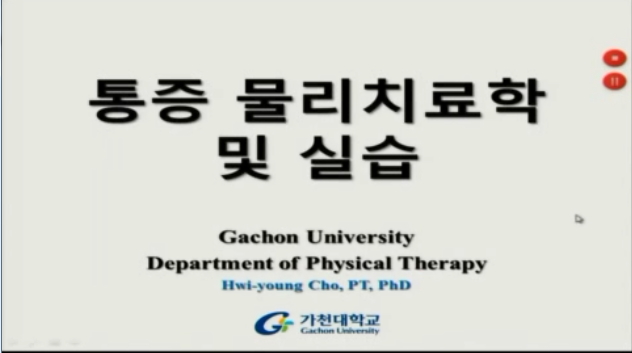The human person is defined as being-towards-death (Sein zum Tode). The life of a man is situated on the confrontation with death, the last gateway from his living on the earth. Terminally ill patients moving towards death might waste last moments of ...
http://chineseinput.net/에서 pinyin(병음)방식으로 중국어를 변환할 수 있습니다.
변환된 중국어를 복사하여 사용하시면 됩니다.
- 中文 을 입력하시려면 zhongwen을 입력하시고 space를누르시면됩니다.
- 北京 을 입력하시려면 beijing을 입력하시고 space를 누르시면 됩니다.
말기환자 돌봄에 관한 연구 : 환자의 통증과 고통을 중심으로 = A Study on the Care of Terminal Patients : Focused on Patients’ Pain and Suffering
한글로보기https://www.riss.kr/link?id=T13727573
- 저자
-
발행사항
나주 : 광주가톨릭대학교 대학원, 2015
-
학위논문사항
학위논문(석사) -- 광주가톨릭대학교 대학원 , 신학과 실천신학 , 2015. 2
-
발행연도
2015
-
작성언어
한국어
- 주제어
-
발행국(도시)
전라남도
-
형태사항
vi, 91 p. ; 26 cm
-
일반주기명
지도교수: 김상용
- 소장기관
-
0
상세조회 -
0
다운로드
부가정보
다국어 초록 (Multilingual Abstract)
The human person is defined as being-towards-death (Sein zum Tode). The life of a man is situated on the confrontation with death, the last gateway from his living on the earth. Terminally ill patients moving towards death might waste last moments of their life on desperation generated from indescribable fear and dread, never experienced. Therefore, preparation for facing with death is needed by all of us and in particular, caring for patients’ deathbed should be reconsidered. At this point, it is proposed that ‘the vocation to care for terminal patients’ be taken into consideration. This vocation is manifested at the moment in which one is induced to see the being-in-itself of terminally ill patients. It is necessary for helpers to search for feasible and pratical ways of care for patients who resting in a terrifying agony, cry for help. Christians also are invited to care for patients, care that could be singularly performed in the faith.
The pain and suffering of terminally ill patients do not require to be cured and healed just on the physical level. The care needed for terminal patients might be accomplished in the place where they can go towards death, accepting their own difficult situations, concluding their own life in a proper way, and maintaining their dignity. For all of these, someone willing to accompany the patients is necessarily called. From the Christian point of view, pain and suffering can be identified with a salvific experience, and with a reality that manifests itself in relation to God. This experience refers also to an imminent advent of liberation issued from pain and suffering. It does not mean refuge ‘from’ pain and suffering, but freedom and liberation ‘through’ pain and suffering: pain and suffering are not a kind of punishment, but a salvific moment in which human being is urged to reform himself, and invited to conversion by virtue of a dynamism of love. They cannot be reduced to ironic incident, because they lead humans to encounter and to recognize the meaning of life, in the center of which the Word of salvation as gift is found.
For terminally ill patients who undergo ‘total pain’, it is necessary to perform so-called ‘total care’. Terminal patients cannot be considered as ‘object’ of care on the ground that the relationship between patient and helper should not be defined as unilateral, that is, as that of recipient-offerer, but be performed bilaterally just like interpersonal communication of donor-donee: in this interpersonal communicative action of care, every persons involved are equal and complementary.
In conclusion, we should affirm that in the interpersonal action of care, terminally ill patient as person is manifested as ‘subject’ who engages himself in relationship with various helpers. Terminal patient and helper, both of them are being that cannot live without love, and that can fully realize himself by way of love, which is self-giving. In the interpersonal relationship between terminal patient and helper, the hope revealed in the Love which is put into action by way of the Passion and Death of Christ, is narrated and demonstrated: giving himself to a patient by means of various acts of love, helper proclaims to the patient the Love of Jesus who heals the sick and raises the dead; participating in the Passion and Death of Jesus Christ by going through his own pain and suffering, terminally ill patient shows the truth of human person to those that help him. The relationship between terminal patient and helper, founded on the action of love, contributes effectually to giving witness to the Presence and Love of God, which in their turn, drive patient and helper to carry through the vocation of love.
국문 초록 (Abstract)
인간은 죽음에로의 존재이다. 인간의 삶은 태어남 이후에 마지막 관문이라 할 수 있는 죽음을 맞이해야하기 때문이다. 하지만 인간은 경험하지 못한 것에 대한 막연한 두려움과 공포심을 지...
인간은 죽음에로의 존재이다. 인간의 삶은 태어남 이후에 마지막 관문이라 할 수 있는 죽음을 맞이해야하기 때문이다. 하지만 인간은 경험하지 못한 것에 대한 막연한 두려움과 공포심을 지니고 있다. 특히 죽음에 직면한 말기환자의 경우 소중한 삶의 마지막 순간을 절망 속에서 허비할 수도 있다. 그러므로 우리 모두는 죽음 앞에 대면할 수 있도록 준비가 필요하며, 그 방편의 일환으로 ‘돌봄’에 관한 재고가 요청된다. 바로 여기서 말기환자를 위한 ‘돌보는 소명’에 관하여 생각해볼 필요성이 제기되는 것이다. 이 문제는 말기환자의 존재자체를 보는 것에서 시작되어야 할 것이다. 그리고 조력자는 그들이 침묵 안에서 몸부림치며 도움을 요청하는 절규를 듣고, 현실적이고 실천적인 돌봄의 대안을 찾아야 한다. 또한 그리스도인은 신앙 안에서 실현할 수 있는 돌봄을 외면해서는 안 되는 것이다.
죽음에 이르는 여정에서 말기환자의 통증과 고통은 육체적인 치료나 치유가 요구되는 것이 아니다. 말기환자에게 필요한 ‘치유’는 주어진 상황을 받아들이고, 자신에게 남아있는 시간동안 자신의 삶을 가치 있게 정리하면서 인간적인 존엄성을 지킬 수 있도록 동반해 주는 것이다. 이 통증과 고통은 그리스도인의 관점에서, 그리고 하느님과의 관계 안에서 올바로 해명될 수 있는 실재로서, 구원의 체험과정이라고 할 수 있다. 이 체험은 하느님과의 관계를 통해 통증과 고통 너머로부터 도래하는 해방의 지점까지를 말한다. 그리고 이 생생한 체험은 통증과 고통으로부터의 탈출이 아니라, 고통을 통하여 임해오는 자유와 해방을 의미한다. 통증과 고통이 형벌이 아니라, 인간을 참회로 이끌고 회개의 길로 초대하는 사랑의 역동성 안에서 벌어지는 구원의 계기들이라는 것이다. 그러므로 통증과 고통이 인간의 힘으로 어쩔 수 없는 불편함이나 괴로움으로 환원될 수 없을 뿐만 아니라, 삶의 의미 곧, 구원의 중심을 바라보고 인정하게 하는 초월적 의미를 지니고 있다고 할 수 있겠다.
말기환자는 ‘전체 통증’을 겪고 있으므로 말기환자의 돌봄은 ‘총체적인 돌봄’의 실현이어야 한다. 사실 말기환자를 도움을 베풀어야 하는 ‘대상’으로서 규정하기 쉽다. 그러나 말기환자를 돌봄의 객체로서만 규정하는 것은 옳지 않다고 할 수 있다. 말기환자가 요청하는 도움 혹은 조력자가 베푸는 돌봄의 손길은 각기 일방적인 형태가 아니라, 쌍방적으로 주고받는 지속적인 상호소통 아래에서 실현해야 한다. 말기환자와 조력자들이 서로 동등한 관계에서 상호보완적 관계를 맺는 돌봄이 요구되는 것이다.
우리는 말기환자도 인격의 한 주체로써 자신을 도와주는 모든 이들과 관계를 맺어가는 주체임에 주목할 필요가 있다. 말기환자와 조력자 모두 사랑 없이 살 수 없으며, 자기 자신을 타자에게 선물로 내어주는 사랑을 통하여 비로소 자기실현에 이를 수 있다. 말기환자와 조력자는 인간 존재가 겪어야 하는 모습, 즉 예수님께서 몸소 보여준 사랑의 실천, 죽음과 부활에 대한 희망을 보여준다. 조력자는 외적으로 드러나는 활동을 통해 자신을 내어주면서 타인을 향한 예수님의 구체적이며 실천적인 사랑을 말기환자에게 전해주는 것이다. 말기환자 또한 자신이 겪는 통증과 고통의 몸부림을 통해서 예수님께서 겪으신 수난, 죽음과 부활에 동참함으로써 인간에 관한 진실을 분명히 보여주고 있다고 하겠다. 그러므로 말기환자와 조력자는 그들이 맺고 있는 관계를 통하여 하느님의 현존과 사랑을 드러내어 보여주고 있는 것이다.
목차 (Table of Contents)
- 《국문초록》 ⅴ
- I. 서론 1
- 1. 연구 동기와 목적 1
- 2. 연구 범위와 방법 2
- 《국문초록》 ⅴ
- I. 서론 1
- 1. 연구 동기와 목적 1
- 2. 연구 범위와 방법 2
- II. 말기환자에 대한 임상적 이해 4
- 1. 말기환자에 대한 신체적 이해 4
- 1. 1. 통증 증상 4
- 1. 2. 호흡기 증상 5
- 1. 3. 소화기 증상 6
- 1. 4. 생식기 증상 7
- 1. 5. 신경·정신계 증상 8
- 1. 6. 림프부종 증상 9
- 2. 말기환자에 대한 정서적 이해 :
- Kübler-Ross의 단계이론을 중심으로 11
- 2. 1. 부정(Denial)과 고립(Isolation)의 단계 11
- 2. 2. 분노(Anger)의 단계 12
- 2. 3. 타협(Bargaining)의 단계 13
- 2. 4. 우울(Depression)의 단계 14
- 2. 5. 수용(Acceptance)의 단계 15
- 3. 소결 16
- III. 말기환자의 통증 및 통증관리방안 18
- 1. 말기환자의 통증 18
- 1. 1. 통증의 정의 18
- 1. 2. 통증의 발생기전 19
- 1. 3. 통증의 원인 21
- 1. 4. 통증의 조절 : 약물 사용 22
- 1. 4. 1. 마약성 진통제 22
- 1. 4. 2. 비마약성 진통제 : 보조 진통제 23
- 1. 5. 통증관리 25
- 1. 5. 1. 통증의 측정 방법 25
- 1. 5. 2. 통증의 조절 25
- 1. 5. 2. 1. 통증의 평가 방법 25
- 1. 5. 2. 2. 통증에 대한 진통제 사용원칙 27
- 1. 5. 3. 통증조절의 다른 방법들 27
- 2. 말기환자의 한계 상황에서 진통제 사용 28
- 2. 1. 말기환자의 고통을 경감하는 다양한 방법 28
- 2. 2. 말기환자의 중추신경계에 작용하는 진통제의 사용 28
- 2. 3. 말기환자의 결정과 마약의 사용 29
- 2. 4. 말기환자의 마약성 진통제 사용 문제 29
- 3. 소결 31
- IV. 말기환자의 고통 32
- 1. 말기환자의 고통 33
- 1. 1. 고통의 정의 33
- 1. 2. 고통에 관한 타(他)종교의 견해 34
- 1. 2. 1. 불교의 고통관 : 고(苦)와 무아(無我), 해탈(解脫) 34
- 1. 2. 2. 유교의 고통관 :
- 지나침(過)과 모자람(不及)의 부조화(不調和) 35
- 1. 2. 3. 무속신앙의 고통관 : 한(恨) 36
- 1. 2. 4. 이슬람교의 고통관 : 절대자의 의지와 결과 37
- 1. 3. 그리스도교의 고통관 : 성경에 관한 이해를 중심으로 38
- 1. 3. 1. 구약성경에 나타나는 고통 39
- 1. 3. 1. 1. 구약성경에서의 고통관 40
- 1. 3. 1. 2. 죄의 징벌인 고통 42
- 1. 3. 1. 3. 교육의 수단인 고통 44
- 1. 3. 1. 4. 시련의 표시인 고통 : 욥기를 중심으로 45
- 1. 3. 1. 5. 대속적 가치를 지닌 고통 46
- 1. 3. 2. 신약성경에 나타나는 고통 47
- 1. 3. 2. 1. 신약성경의 고통관 48
- 1. 3. 2. 2. 예수 그리스도와 고통 50
- 1. 3. 2. 3. 예수 그리스도의 십자가와 고통 51
- 1. 3. 2. 4. 예수 그리스도의 부활과 고통 53
- 1. 4. 구원에 이르는 고통(Salvifici Doloris) 54
- 1. 4. 1. 고통의 구원적 의미 : 고통받는 이들과 함께함 54
- 1. 4. 2. 인간의 신비인 고통 : 십자가에서 드러난 사랑 55
- 2. 소결 59
- V. 말기환자에게 필요한 돌봄 60
- 1. 말기환자를 위한 윤리적 대안 : 호스피스 60
- 1. 1. 호스피스의 정의 60
- 1. 2. 호스피스의 목적과 필요성 60
- 1. 2. 1. 호스피스의 목적 60
- 1. 2. 2. 호스피스의 필요성 61
- 1. 3. 호스피스 대상자 선정 및 사전(事前)동의 62
- 1. 3. 1. 호스피스 대상자 선정기준 62
- 1. 3. 2. 호스피스 대상자의 사전(事前)동의 63
- 1. 4. 호스피스 구성원의 역할 64
- 1. 4. 1. 호스피스 조정자 65
- 1. 4. 2. 호스피스 사목자 65
- 1. 4. 3. 호스피스 의사 66
- 1. 4. 4. 호스피스 간호사 66
- 1. 4. 5. 호스피스 봉사자 67
- 2. 말기환자를 위한 그리스도인의 역할 67
- 2. 1. 말기환자에게 다가섬 68
- 2. 2. 말기환자와 함께함 70
- 2. 3. 말기환자를 돌봄 72
- 2. 4. 말기환자를 위로함 73
- 2. 5. 유가족에 대한 배려 76
- 2. 5. 1. 임종 전 가족에 대한 배려 77
- 2. 5. 2. 임종 후 유가족에 대한 배려 78
- 3. 소결 79
- VI. 결론 81
- 1. 말기환자의 ‘통증과 고통’ 81
- 2. 말기환자의 ‘돌봄’ 81
- 3. 말기환자와의 ‘관계 맺음’ 82
- 참고 문헌 83
- 《Abstract》 89












